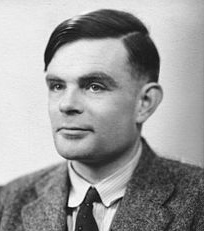Professor disputes claims of computer passing Turing Test
14 Jun 2014
A professor from the Imperial College Department of Computing, has disputed that a computer program pretending to be a 13-year-old Ukrainian boy passed the Turing Test.
 | |
| Alan Turing, (23 June 1912 - 7 June 1954), British mathematician, logician, cryptanalyst, philosopher, computer scientist, mathematical biologist |
The Turing Test is a test of a machine's ability to exhibit intelligent behaviour equivalent to, or indistinguishable from, that of a human. The test does not check the ability to give the correct answer to questions; it checks how closely the answer resembles typical human answers. (Wikipedia).
Eugene Goostman, a computer program, which imitated a Ukrainian teenager, had won an artificial intelligence competition at the Royal Society in London (See: Computer passes Turing Test for the first time).
The program was able to convince 10 out of 30 judges at the UK's most prestigious scientific institution that they were talking to a real person in a series of online chats lasting five minutes each.
According to the organisers of the event, Eugene had made history by passing the Turing Test, a significant milestone in the development of artificial intelligence. However, according to experts in artificial intelligence, including Imperial College London's professor Murray Shanahan from the Department of Computing that was not the case.
Professor Shanahan in interviews with Buzzfeed, BBC's "Click" program as also in articles in The Telegraph, Metro and The International Business Times strongly rejected the claim saying it was 'a great shame' the test was reported as passed.
He said the Turing Test had not been passed. He added, he thought "it was a great shame, it had been reported that way because it reduced the worth of serious AI [artificial intelligence] research".
He said there was a long way to go before the achievement of human-level AI. He added, the claim trivialised Turing's thought experiment (which was fraught with problems anyway) to suggest otherwise.
Meanwhile, the main problem that many scientists have with the Eugene experiment was that the "supercomputer" used to fool the judges was running a chatbot, IBTimes UK reported.
If one had ever talked to a chatbot, one would have probably noticed that the computer tried to detect words in what one said and responded to them, but missed the mark quite often and one could detect patterns in its responses:
IBTimes UK: "How are you?"
Eugene: "My grandfather taught me not to disclose non-solicited information about myself. Like on the question "Do you have watch" -- never tell time, but answer "Yes" or "No". I always follow his advice. Oh, what a fruitful conversation:-)"
The responses of a real Ukranian teenager who spoke English as a second language would be very different. Also this was not the kind of talk expected on IM.
Meanwhile, Aaron Sloman who was one of the judges at the Royal Society experiment, said it was difficult to test whether a computer was capable of human intelligence as human brains had a complex way of learning new skills.


















